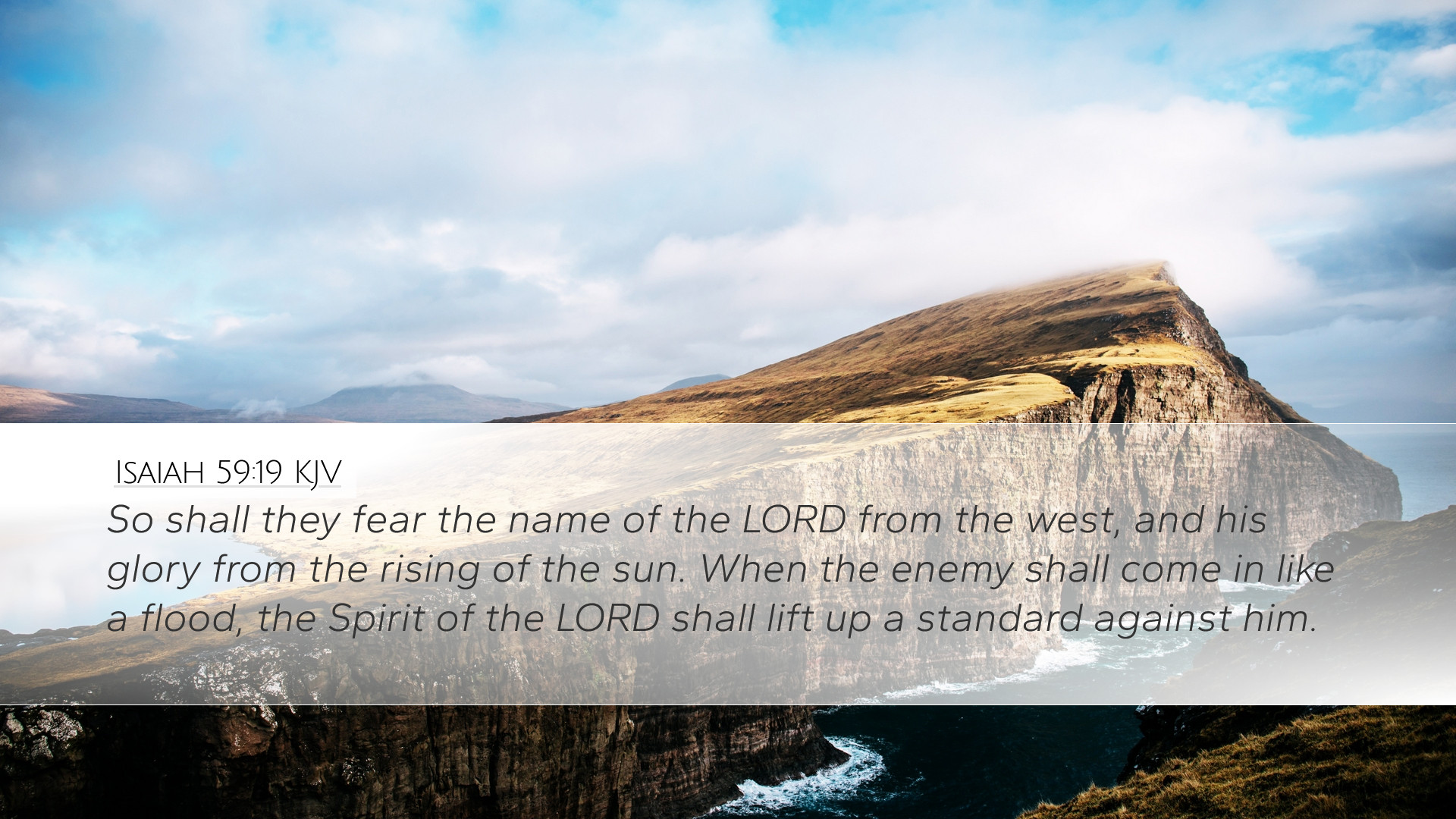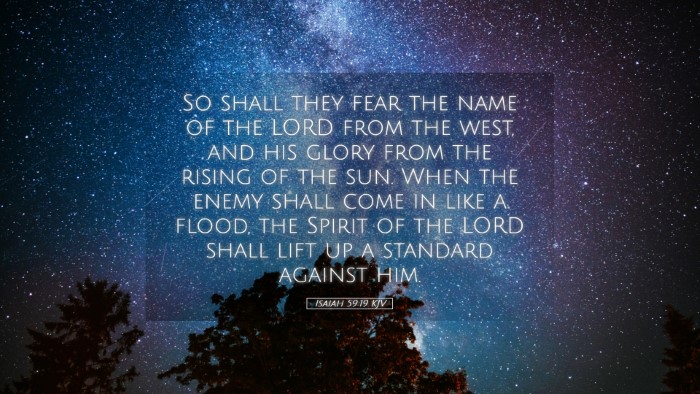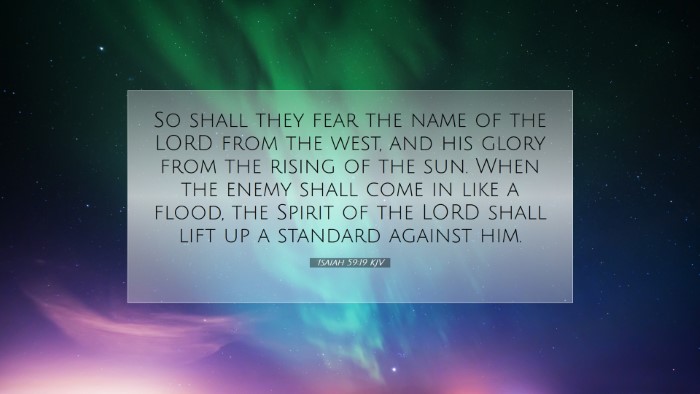Commentary on Isaiah 59:19
Verse Text: "So shall they fear the name of the LORD from the west, and his glory from the rising of the sun. When the enemy shall come in like a flood, the Spirit of the LORD shall lift up a standard against him."
Introduction
This verse from the prophetic book of Isaiah encapsulates profound themes of divine protection and the reverence due to God. The imagery of fear and glory associated with the Lord is potent, symbolizing both his majesty and might. The mention of the enemy coming in like a flood conveys an urgency and danger, followed by the promise of divine intervention.
Contextual Background
Isaiah prophesied during a tumultuous period for Israel, marked by sin, idolatry, and impending judgment. His messages often serve as both warnings and assurances, indicating God’s sovereignty over Israel’s fate.
This verse is part of a larger passage discussing the moral and spiritual failures of the people and the contrast with God’s holiness and eventual redemption. Understanding the historical and theological context is crucial for a comprehensive interpretation.
Commentary Insights
1. The Fear of the Lord
Matthew Henry notes that the fear referred to here is not merely a trembling dread but a reverent acknowledgement of God’s power and authority. This fear is foundational to true worship and denotes an awakening to God’s presence among the nations. The awe that believers have towards God influences their obedience and response to His glory.
2. The Global Scope of God's Glory
Albert Barnes emphasizes the universality of God's glory. The mention of "from the west" and "from the rising of the sun" indicates that God’s name will be revered across the earth. The promise encompasses both the Gentiles and the people of Israel, suggesting that the enlightenment of God’s glory is intended for all nations.
3. The Enemy's Invasion
The imagery of the enemy coming in "like a flood" suggests overwhelming and near-imminent danger. Adam Clarke points out that this metaphor illustrates the suddenness and ferocity of attacks faced by God’s people. Clarke elaborates that such imagery recalls the historical oppressions faced by Israel, particularly during times of exile and distress.
4. Divine Intervention
The latter part of the verse offers a profound assurance: "The Spirit of the LORD shall lift up a standard against him.” Here, the "standard" symbolizes a rallying point or signal for God’s people to come together for defense. Matthew Henry reflects on this as an emblem of God’s victorious power, reassuring the faithful that they are not abandoned in battle. God Himself stands as their protector.
5. The Role of the Spirit
The reference to the Spirit of the LORD highlights His active role in ensuring the deliverance and strength of God’s people. Albert Barnes states that the Holy Spirit is instrumental in empowering believers, providing them with both spiritual fortitude and guidance in times of crisis. This work is both immediate and communal, as God’s protection extends to all who turn to Him.
Theological Reflection
This verse challenges believers to consider the nature of their fear and worship. In a world filled with trials and adversities represented by the flood, the promise of God lifting a standard serves as a reminder of His unfailing presence and power. The blessing of fearing the name of the Lord is not a burden but a source of profound strength and security.
Moreover, the global inclusivity of this verse calls the church today to a vision that transcends ethnic and cultural boundaries, drawing all humanity to recognize God’s sovereignty and glory. Such a vision undergirds the Great Commission and drives the mission of the church.
Practical Applications
- Embrace Reverence: Cultivate a deep reverence for God's name that impacts daily living.
- Proclaim His Glory: Actively share testimonies of God’s faithfulness across diverse communities.
- Seek Divine Deliverance: In moments of trial, rely on God’s Spirit for courage and guidance.
- Foster Unity: Encourage unity amongst believers to stand firm against spiritual adversities.
Conclusion
Isaiah 59:19 is a remarkable verse that articulates the dual realities of fear and faith in the context of divine assurance. For pastors, students, theologians, and Bible scholars, this verse invites deeper exploration of the relationship between God’s glory and His people, especially in the face of adversity. The insights gleaned from public domain commentaries inspire a holistic understanding that not only enriches personal faith but also challenges the collective mission of the church.


